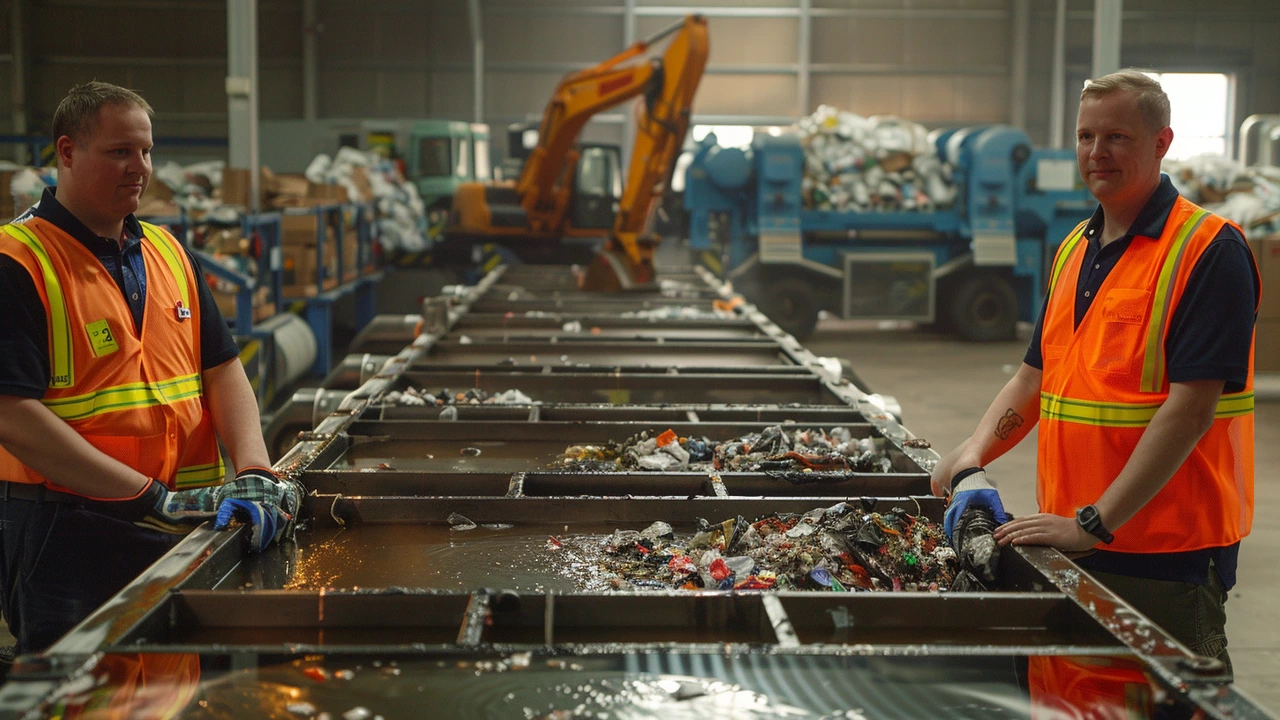Watchdog Asked to Investigate EfW Ban in Scotland
Environmental groups have called upon Environmental Standards Scotland to scrutinize the Scottish Government’s purported failure to effectively implement its moratorium on new energy-from-waste (EfW) developments. This pressing concern arises from the observation that, despite the ban declared in June 2022, EfW capacity in Scotland has seen a staggering increase of 17%. The expansion includes a significant addition of 65,000 tonnes to the Viridor Dunbar EfW plant and the commencement of operations at the NESS Energy Project in Aberdeen.
The Moratorium and Its Uneven Enforcement
The Scottish Government had introduced this moratorium in June 2022, instructing local councils to cease granting permissions for new EfW sites. This directive came in response to an independent review that underscored the detrimental environmental and climatic impacts of incineration. The review identified that Scotland had seven operational incinerators with eight more possessing full planning permission, a prognostication that indicated an oversupply of incineration capacity relative to residual waste production by the year 2027.
Environmental Groups’ Claims and Concerns
Despite the government’s stated intentions, environmental Non-Governmental Organizations (NGOs) argue that the ban has not been enforced effectively. They highlight the absence of an 'indicative cap' for residual waste treatment as a significant oversight. Such a cap would serve as a crucial regulatory mechanism to limit the allowable amount of waste destined for incineration, preventing the excess capacity that now seems imminent. The NGOs, including Friends of the Earth Scotland and Irvine Without Incinerators, contend that without this cap, the moratorium is rendered practically toothless.
Commitment to a Circular Economy
Amid these controversies, the Scottish Government reiterates its commitment to transitioning towards a circular economy—a system where resources are reused, repaired, and recycled for as long as possible, minimizing waste. However, the government also acknowledges the role of incineration in managing waste that cannot be recycled. This dual stance has been a hotbed of contention as environmental groups push for more radical measures to limit incineration capacity to protect the environment.
A Call for Action
The urgency of the issue is underscored by environmental groups calling for more stringent action. They assert that the government has allowed an increase in incineration capacity contradictory to its moratorium. For instance, the 65,000-tonne expansion at the Viridor Dunbar EfW plant and the activation of the NESS Energy Project in Aberdeen exemplify these lapses in enforcement. These groups argue that without decisive intervention and more stringent enforcement, the moratorium will fail its primary purpose of curbing unnecessary waste incineration and safeguarding environmental health.
Mistrust and Accountability
There is a growing mistrust among environmental advocates regarding the government’s sincerity and efficiency in enforcing environmental regulations. The call for an investigation by Environmental Standards Scotland aims to ensure accountability and transparency in this matter. Environmental groups argue that a thorough probe will reveal whether there were deliberate oversights or gaps in policy enforcement, and most importantly, push for corrective measures to realign government actions with its stated environmental goals.
The Broader Implications
The implications of this controversy stretch beyond Scotland's borders. It serves as a critical case study for how governments can balance economic, environmental, and public health needs while transitioning to sustainable waste management systems. An effective moratorium enforcement could set a global precedent, illustrating a real shift towards a circular economy and providing a model for other nations grappling with similar issues.
Conclusion
In conclusion, the push by environmental groups for Environmental Standards Scotland to investigate the Scottish Government’s moratorium on energy-from-waste developments highlights the complexities and real-world challenges of environmental policy implementation. While the government avows its dedication to a sustainable and circular economy, the burgeoning incineration capacity suggests a disconnect between policy and practice. This call to action underscores the necessity for stringent and transparent enforcement mechanisms to ensure that environmental goals are not just aspirational but achievable realities.
